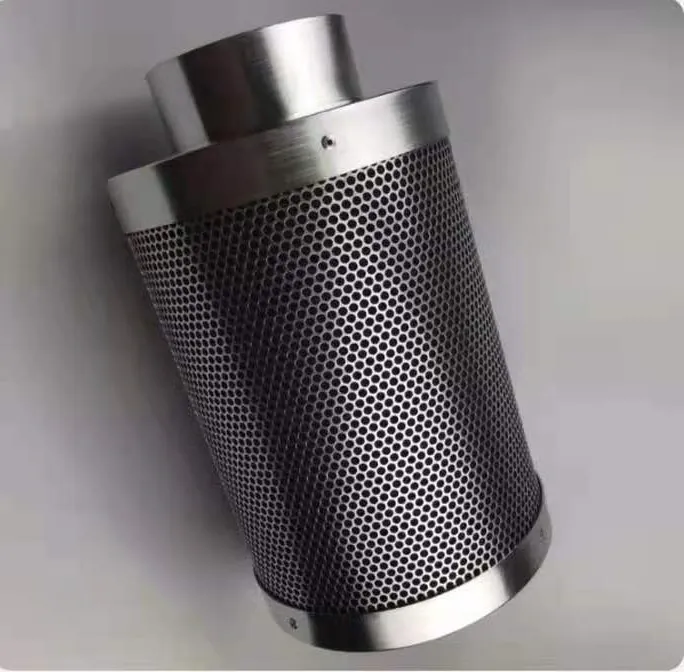 Tel:
+8615930870079
Tel:
+8615930870079
nov . 10, 2024 01:21 Back to list
Gas Turbine Inlet Filters and Their Impact on Performance and Efficiency
The Importance of Gas Turbine Inlet Filters
Gas turbines are a cornerstone of modern energy production, playing a critical role in power generation, aviation, and various industrial applications. As with any machinery, the efficiency and longevity of gas turbines are significantly impacted by the quality of the air entering the system. This is where gas turbine inlet filters come into play. These filters are essential components that protect the turbine from particulate matter, moisture, and other contaminants that can lead to operational inefficiencies or even catastrophic failures.
Understanding Gas Turbine Inlet Filters
Gas turbine inlet filters are designed to remove impurities from the air before it enters the compressor section of the gas turbine. The primary pollutants include dust, dirt, salt, and other airborne particles. Without adequate filtering, these contaminants can cause wear and tear on the turbine components, leading to increased maintenance costs and reduced performance. Over time, the accumulation of contaminants can also lead to fouling of the compressor blades, decreasing their aerodynamic efficiency and the overall output of the turbine.
Types of Gas Turbine Inlet Filters
There are several types of inlet filters commonly used in gas turbines, each with its specific application
1. Panel Filters These are made from fibrous materials and are often used in a clean environment where the air quality is relatively controlled. They are lightweight and easy to replace but may not be suitable for harsher environments.
2. Pleated Filters Featuring a larger surface area compared to panel filters, pleated filters provide enhanced filtration efficiency and durability. They can capture smaller particles and are often utilized in environments with higher levels of contamination.
3. Metal Filters Made from stainless steel or other robust materials, metal filters are capable of withstanding extreme temperatures and are often used in applications where chemical resistance is necessary. They are reusable and can be cleaned, making them an economically viable option in many situations.
gas turbine inlet filter

4. Electrostatic Filters These filters use an electric charge to attract and capture particles from the air. They offer high efficiency and are particularly effective at capturing smaller particulate matter, which is critical in high-performance turbine applications.
Impact on Performance and Efficiency
Effective air filtration is crucial for optimizing the performance of gas turbines. By ensuring that only clean air enters the compressor, inlet filters help maintain the turbine's efficiency. Clean air results in more effective combustion, leading to increased power output and lower fuel consumption. Furthermore, maintaining optimal performance can significantly extend the life of the turbine, reducing the frequency and costs associated with maintenance and replacement.
Challenges and Maintenance
While gas turbine inlet filters are essential for protecting turbine operations, they also present challenges. Regular maintenance is necessary to ensure that the filters function effectively. Clogged or dirty filters can lead to a restriction in airflow, reducing the efficiency of the turbine. This phenomenon, known as filter fouling, can significantly impact power generation and operational costs. Therefore, regular inspections and replacements are vital to uphold performance standards.
Additionally, the choice of filter should be matched to the environmental conditions in which the turbine operates. For instance, turbines located near coastal areas may require filters that can handle saline particles, while those situated in arid regions may need filters designed to cope with fine dust.
Conclusion
Gas turbine inlet filters play a vital role in the overall efficiency and reliability of gas turbines. By effectively removing contaminants from the air intake, these filters help prevent damage to turbine components, ensure optimal performance, and reduce operational costs. As technology evolves, advancements in filtration systems continue to improve the effectiveness and longevity of gas turbines, making them even more essential in a world increasingly reliant on this efficient form of energy production. In investing in high-quality inlet filters and ensuring regular maintenance, operators can safeguard their turbines, enhance performance, and contribute to a more sustainable energy future.
-
Nano Fiber Technology: Revolutionizing Cartridge Dust Collector FiltersNewsAug.06,2025
-
How Activated Carbon Air Cartridges Eliminate OdorsNewsAug.06,2025
-
Dust Filter Cartridge Handling Fine Particulate MatterNewsAug.06,2025
-
Cartridge Dust Collector Filter for Welding Fume ExtractionNewsAug.06,2025
-
Activated Carbon Filter Cartridge Effectiveness Against VOCsNewsAug.06,2025
-
Activated Carbon Air Filter Cartridge Benefits ExplainedNewsAug.06,2025

 Email:
Email:





